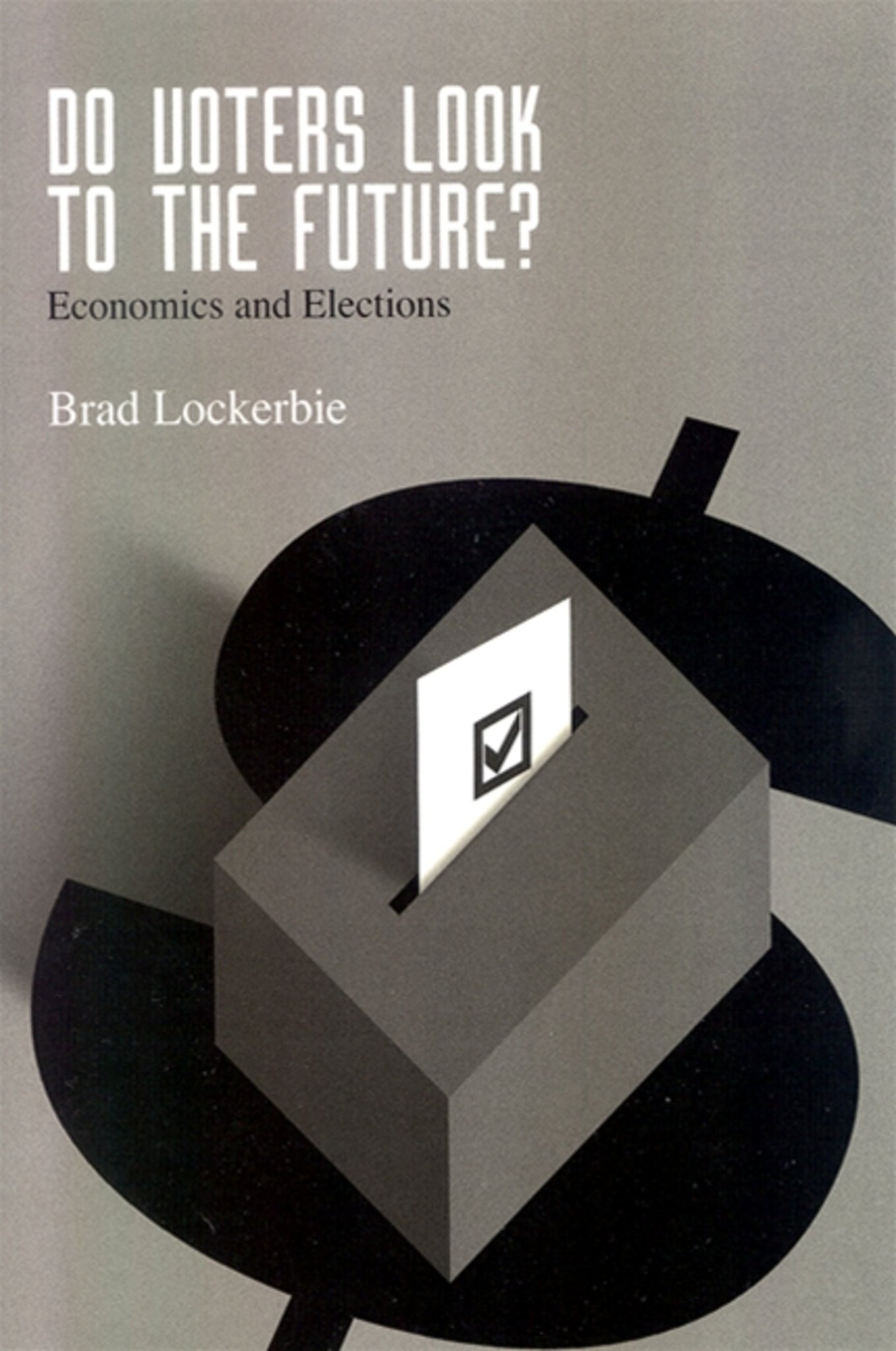We're sorry. An error has occurred
Please cancel or retry.
Do Voters Look to the Future?

Some error occured while loading the Quick View. Please close the Quick View and try reloading the page.
Couldn't load pickup availability
- Format:
-
19 June 2008

Argues in favor of a different model of voting behavior.
Do voters look to the past, the future, or both when deciding how to vote? In Do Voters Look to the Future?, Brad Lockerbie shows voters to be more sophisticated than much of the work in political science would suggest. He argues that voters do not simply reward or punish the incumbent administration, but instead make a comparative evaluation of the likely performance of each candidate and vote for the one that will most likely provide them with a prosperous future. Making use of data from 1956 through the present, Lockerbie finds that voters take into account both what has happened and what they think will happen when they vote. He finds these economic evaluations to be strongly related to voting behavior both for the House and the Senate, as well as the presidency. Additionally, Lockerbie examines the role of these economic items to explain changes in party identification.


"…a thought-provoking argument that comprehensively surveys the theory and literature regarding the degree to which voters look to the past and future in making their decisions … Lockerbie's work takes up a neglected subject and shows why it deserves more attention." — American Review of Politics
"…[Lockerbie's] volume adds to the mounting evidence that voters base their decisions more on concern about the future than on their reaction to what has already passed." — Political Science Quarterly
"This book deals with a very important subject within the economic voting literature: the significance of retrospective versus prospective judgments. It helps overcome the wrongful neglect of the prospective school." — Michael S. Lewis-Beck, coauthor of Economics and Elections: The Major Western Democracies
List of Illustrations
Acknowledgments
1. Introduction
2. Simple Economic Relationships
Appendix 2.1: Prospective Evaluations: Are They Partisan Rationalization?
3. Party Identification: Is It Changeable?
Is It Explicable?
Appendix 3.1: Instrumental Variables for PIDt21 (3-Point and 7-Point Scales)
Appendix 3.2: Party Identification as a Function of Retrospective and Prospective Economic Evaluations with Actual Past Party Identification (3-Point and 7-Point Scales)
Appendix 3.3: Party Identification as a Function of Changes in Evaluations (3-Point and 7-Point Scales)
4. Presidential Elections: A More Comprehensive View
5. Congressional Elections: Yes, the Senate Too
6. Economics and Politics: Egocentric or Sociotropic?
Appendix 6.1: Retrospective Egocentric and Sociotropic Items Predicting Political Attitudes: 1992
Appendix 6.2: Retrospective Egocentric, Sociotropic, and Prospective Items Predicting Political
Attitudes: 1992
Appendix 6.3: Retrospective Egocentric, Sociotropic, and Prospective Economic Evaluations, Ideology, and Party Identification Predicting Political
Attitudes: 1992
7. Forecasting Elections
Appendix 7.1: Data and Sources of Data
8. Concluding Remarks
Notes
References
Index
Illustrations
Tables



